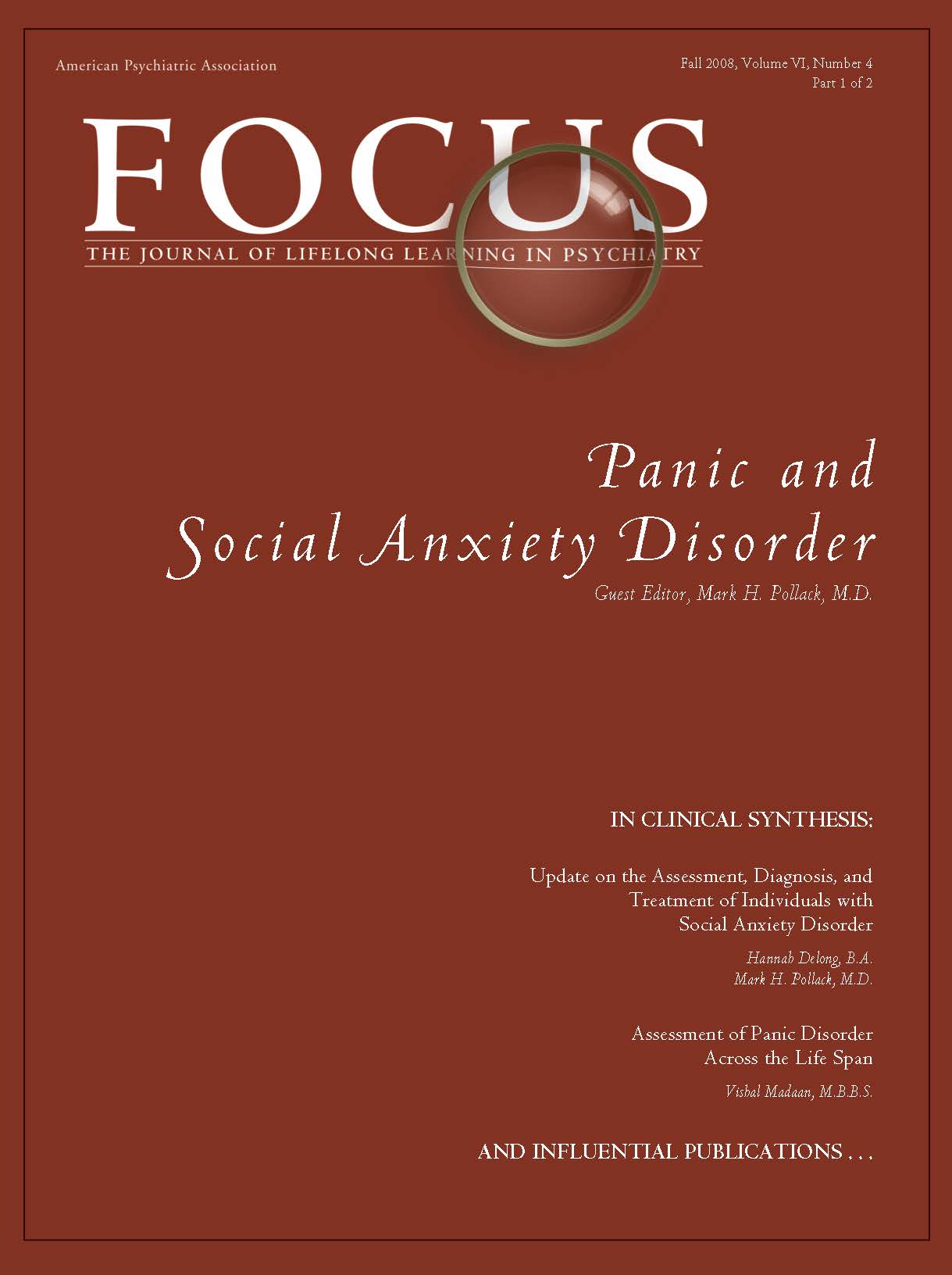Anxiety Disorders and Comorbid Medical Illness
Abstract
Objective:
To provide an overview of the role of anxiety disorders in medical illness. Method: The Anxiety Disorders Association of America held a multidisciplinary conference from which conference leaders and speakers reviewed presentations and discussions, considered literature on prevalence, comorbidity, etiology and treatment, and made recommendations for research. Irritable bowel syndrome (IBS), asthma, cardiovascular disease (CVD), cancer and chronic pain were reviewed. Results: A substantial literature supports clinically important associations between psychiatric illness and chronic medical conditions. Most research focuses on depression, finding that depression can adversely affect self-care and increase the risk of incident medical illness, complications and mortality. Anxiety disorders are less well studied, but robust epidemiological and clinical evidence shows that anxiety disorders play an equally important role. Biological theories of the interactions between anxiety and IBS, CVD and chronic pain are presented. Available data suggest that anxiety disorders in medically ill patients should not be ignored and could be considered conjointly with depression when developing strategies for screening and intervention, particularly in primary care. Conclusions: Emerging data offer a strong argument for the role of anxiety in medical illness and suggest that anxiety disorders rival depression in terms of risk, comorbidity and outcome. Research programs designed to advance our understanding of the impact of anxiety disorders on medical illness are needed to develop evidence-based approaches to improving patient care.
(Reprinted with permission from General Hospital Psychiatry 2008; 30:208–225)



